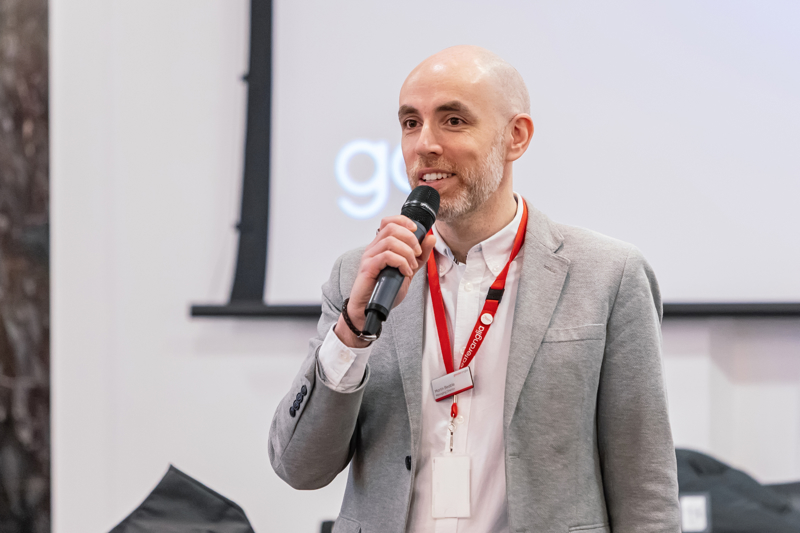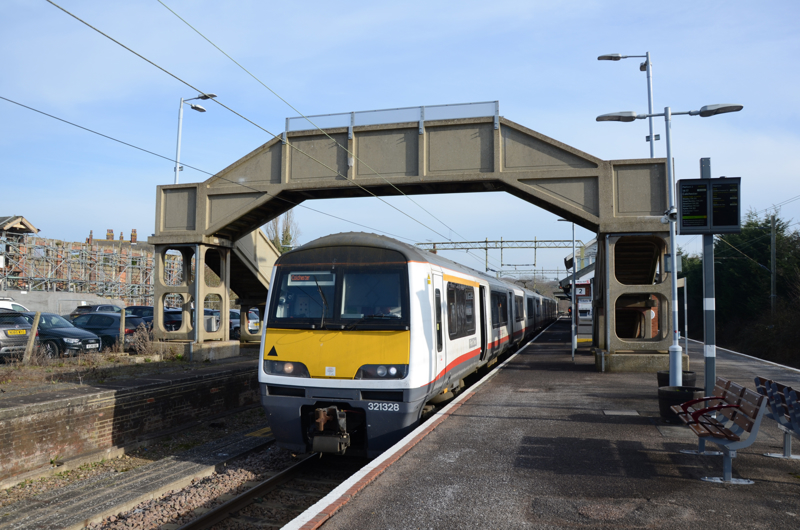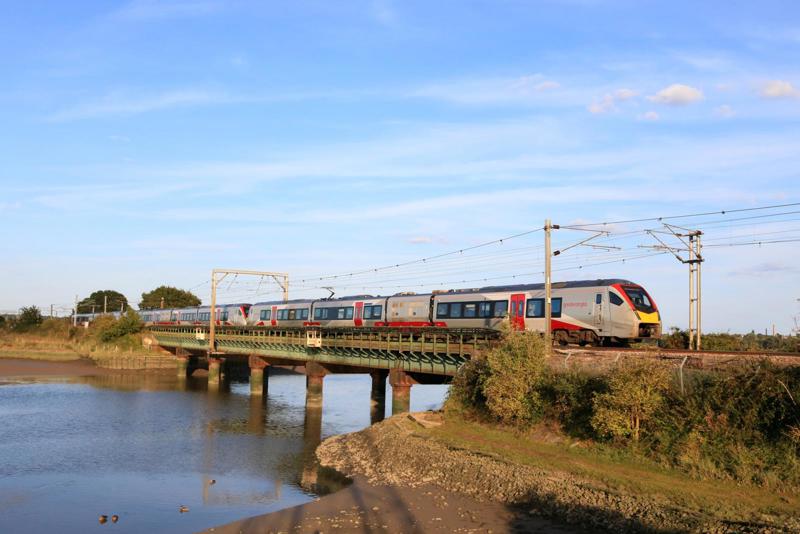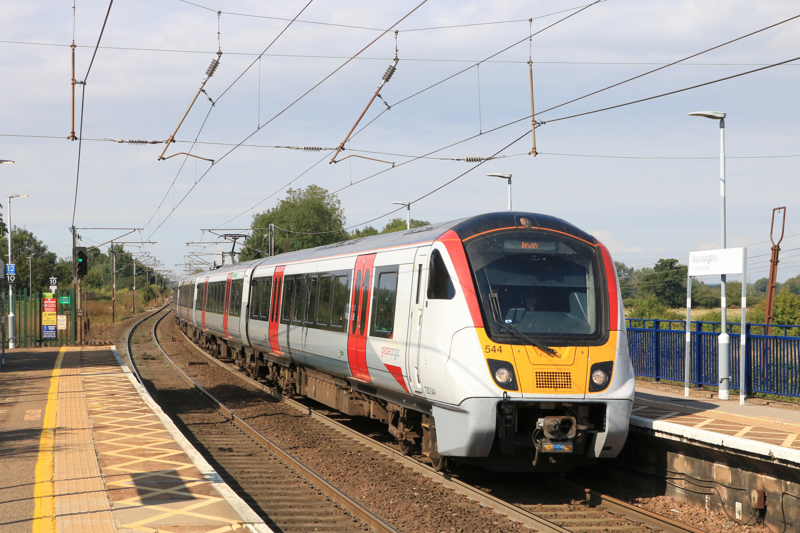
“I think direction of travel is likely to be ‘earned autonomy gives better results’. I hope that’s the way things are going.”

“I think direction of travel is likely to be ‘earned autonomy gives better results’. I hope that’s the way things are going.”
So says Greater Anglia Managing Director Martin Beable, when asked by RAIL about his hopes for rail reform.
The Transport UK-run operator has been the most punctual in the country for more than two years, and has won numerous gongs at RAIL’s National Rail Awards. Since 2019, it has won Passenger Operator of the Year twice (and been highly commended once), Fleet Achievement of the Year, Large Station of the Year twice, and Outstanding Teamwork.
This autumn, it will become the third operator to move to DfT Operations Ltd (DFTO), as part of the Labour government’s rail reform. When it joins DFTO, it will be in a different position to most other operators taken over by the government in recent years, having not experienced operational or financial challenges which have required urgent attention.
Given that, Beable is hopeful that the “earned autonomy” GA has enjoyed since franchises were replaced with the more restrictive National Rail Contracts can continue.
“I think direction of travel is likely to be ‘earned autonomy gives better results’, therefore giving TOCs [train operating companies] that are performing well and delivering on their budget and performance commitments and revenue commitments, giving them autonomy to go about doing an increasingly better job. I hope that’s the way things are going,” he told RAIL.
In late 2024, Beable had echoed the calls of Transport UK’s Chief Executive, Dominic Booth, to not rush rail reform.
Explaining that position, Beable said: “At the time I was concerned that our contract allows the government to call for termination within three months. My concern, at the time, was three months was not going to be enough time for an orderly transition.
“If it was condensed into a short timeframe, it would have completely drawn the attention of the senior leadership team, which of course means that you can’t naturally give the same level of attention to upholding the same level of excellent service that I think our customers had become accustomed to.”
In the event, that has not happened. In December, the Transport Secretary said GA will be nationalised in autumn 2025. Even without a specific date, that is giving the operator the best part of a year to prepare.
“Our job is to make it a success, to work with the government. When renationalisation has happened, to play a willing, front-of-the-queue open role in trying to help Great British Railways be as good as it can be,” Beable added.
Culture
He tells RAIL that a lot of GA’s success is down to culture. Gone are the days when managers would “hive off in different corners of the office and get their stories straight” about performance, with a weekly meeting used to discuss performance and hold managers to account.
“Every Friday, without fail, our train service delivery director, supported by our engineering director and our commercial director and customer services director, and with me present, get together. And every person who owns a delay code has to talk on the figures they’ve achieved, and why they’ve been good or the incidents that have caused them to be bad. And if we’re talking about why they’re bad, what they’re doing about it.
“And, when they commit to what they are doing about it, they are politely but genuinely challenged about it. And they are held to account for delivering it.
“That sounds incredibly simple because it is,” he said, adding that it takes “discipline and rigour to do that weekly”.
That culture to find ways to improve runs throughout the organisation, says Beable.
He recalls being at Stansted Airport, when a member of staff said GA was losing too much revenue to coaches and needed a presence in the arrivals hall to attract customers.
“I was delighted by it. That’s somebody who’s clearly motivated by the thought of attracting people to our train service.
“What made me even more happy was coming back and talking to the team, and finding there were already wheels in motion to make some roster changes to put people into the arrivals hall. Within a matter of weeks, I had a business case on my desk.
“I genuinely think our business’s approach to trying to maximise revenue and patronage growth post-COVID has been top-notch.”
After recording 75 million passenger journeys in 2023-24, GA set itself a target of 80 million for 2024-25. It beat that, achieving 82 million journeys - a 7.7% increase on the previous year.
Rolling stock transformation

GA’s improvement in recent years also coincides with a transformation of its fleet.
Back in 2019, there were still Class 153s, ‘156s’, ‘170s’, ‘317s’, ‘321s’, ‘360s’, ‘379s’, Mk 3s, Driving Van Trailers (DVTs), Class 90s and even some Class 37s and Mk 2s being used, plus sub-fleets of Class 317s and ‘321s’.
Post-COVID, they’ve all been replaced with Alstom Class 720s and Stadler Class 745s and ‘755s’, leading to a better and more consistent offering for customers, plus maintenance benefits.
With that success, Beable had thoughts on where the industry can improve: “What I think this business shows me is that we have, as an industry, undervalued the impact of having commonality and homogeneity across train fleets where you can reasonably introduce it.
“It’s difficult to put a value on the benefits of having big homogenous fleets. Therefore, historically, we’ve not really done that. And you see that in some other operators that have had much more complex fleet make-ups with smaller fleets, and may have regretted it subsequently.”
Franchise specifications often included investment in new train fleets that Beable said “incentivised quality”, but he noted that will change dramatically.
“Historically, the private railway set up a free market with respect to rolling stock, so the government wasn’t there to have a guiding mind because the franchise competitions were designed to drive the best outcomes for passengers.
“One thing that will be interesting is how the government positions itself in respect of the rolling stock market. There aren’t lots of franchisees competing against each other. We will in future have one primary buyer.”

GA pointed out that its use of Class 37s and Mk 2s from 2015 was in response to growth, and because no other operators were parting with more modern units as they were growing too.
Beable added: “One of the benefits I think we will get - I hope - from a nationalised industry is you can stop boom and bust. You can put in place some clever plans around the pipeline for rolling stock. You can have an integrated strategy in terms of how you are going to use your train fleet, shifting the deck around the country. It means you don’t have to wait for big franchise competitions to make your change.”
GA resisted the urge to overhaul its timetable as soon as the new trains entered service, bedding them in over a minimum of 12 months before identifying where gains could be made.
“A lazy observer may say ‘you’ve had all the new trains - it must be easy’. And if there’s one way to raise my blood pressure and give me an eye twitch, it’s that, because it’s fundamentally not true,” Beable told RAIL.
“Our timetable is the bedrock of what we do. Our train planners have done a phenomenal job making sure it actually works. The team have done a very good job at setting a base where we know if there’s no perturbation, it works - and it works well. And that’s a good place to be changing from.”
These new trains have helped GA return to 95% of pre-COVID levels, with Beable saying: “People come back if they know they get a high-quality service.”
For instance, the June 2024 timetable shortened London-Norwich journeys by seven minutes, yet reliability and punctuality have held up.
Operations

As passenger levels have recovered, the operator has been more dextrous with adjusting its timetabling, stopping patterns and diagrams to avoid overcrowding.
During the pandemic, this was on a weekly basis. And while it’s not as frequent today, the operator still amends things to ensure it’s “not suppressing that demand growth”.
In the months following COVID, GA made a pitch to the Department for Transport for budget to increase Stanstead services as air travel grew (following the cutbacks during lockdowns) - something that has “significantly more than paid for itself”.
Subsequently, the operator is working with Network Rail to see if it can take some of the latter’s access time on the West Anglia Main Line on Thursday-Saturday nights, when more flights land at Stansted, but give engineers another time of the week to do their work.
“Just because we’ve done it like this doesn’t mean it’s necessarily the right thing for our passengers and our revenue line,” said Beable.
“We’re looking to spot these opportunities all the time, to challenge the status quo and deliver a high premium from this railway back to the government, and a product our customers want.”
Given this success, it is little wonder other operators have visited GA to see how it operates. Beable told RAIL they often comment on the company’s “openness and honesty”.
He said the feedback often focuses on culture. Referring to the Friday meetings, he added: “Lots have said we do something like this, but not as thorough. But I like to think all have taken something from it.”
While Beable doesn’t expect DfT to ask for help with other operators, he commented: “I wouldn’t be surprised if they do want to take some of our DNA and use it to help in areas where there’s some help needed."
Login to continue reading
Or register with RAIL to keep up-to-date with the latest news, insight and opinion.


















Stu Anderson - 30/04/2025 13:29
I think direction of travel is likely to be ‘earned autonomy gives better results’. I hope that’s the way things are going.” so what he's saying leave private operators to make the decision on what services, go where at what time...... Because that's worked over the last 28 years hasn't it.............. At the moment they are told what services to run... but if privare operators are given "earned autonomy" they'll do what what bus companies do now... a service with maybe 2 passengers or no passengers.... Cut the service....... a route not making money... cut the route..... This is why earned autonomy is a bad idea... private companies will only do what's right for their CEO's and shareholders not what is right for the public... and if you believe them when they tell you "everything we do is for the public" then you have been scammed... It is a total lie... We've seen over the years what can go wrong.... Open access operators there is an incentive whether the train is full or empty... there is no incentive for a private company to self govern, look at the water companies, that's what happens you allow private companies to be I think direction of travel is likely to be autonomonous. Look at the post office scandal that's what happens when you allow a company to only answer to themselves... They overweald there powers... That is the biggest load of horse manure i've ever heard.